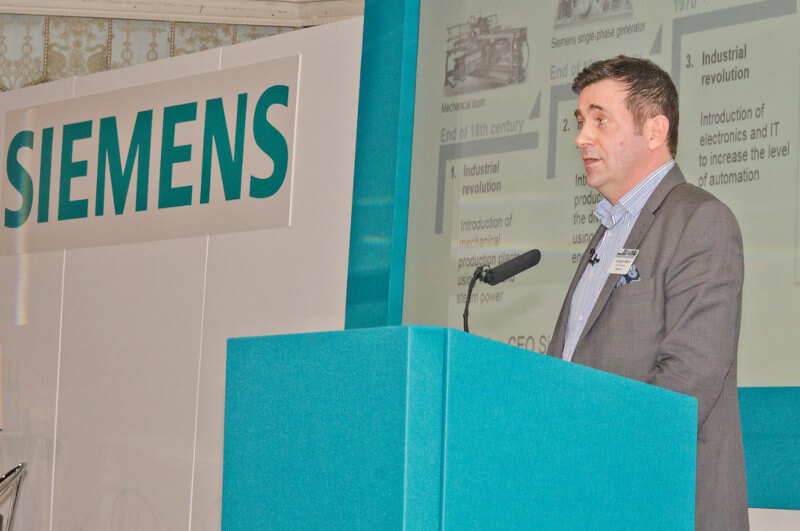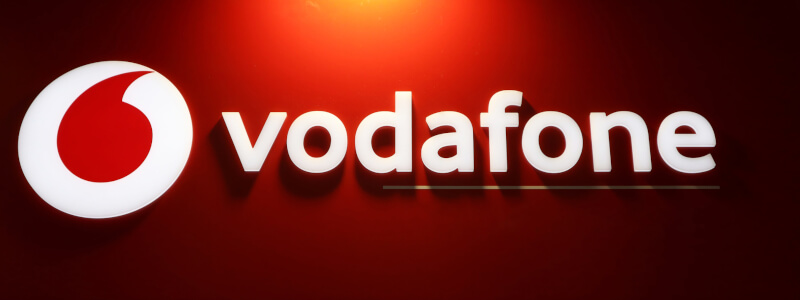South Africa’s economic growth over the years has been substantially influenced by the contribution of international businesses. Their involvement spans various sectors, creating job opportunities, bolstering the economy, and driving innovation. European companies, in particular, have made a substantial difference in the Rainbow Nation, and today, we’ll explore how four of these companies—Siemens, Unilever, Vodafone, and Nestlé—have significantly impacted South Africa.
Siemens – A Pioneer of Industrial Evolution

German-based Siemens has had a presence in South Africa for over 160 years, significantly contributing to the industrial sector. They’ve recently made news headlines with their commitment to investing over €1 billion in new projects alongside the South African government.
Business Progress
Siemens’s continued investment is a testament to their success in the market. They have been instrumental in various sectors including energy, healthcare, and infrastructure, with notable projects such as the wind turbines in the Eastern Cape and advanced medical imaging equipment to hospitals across the country. Siemens has been involved in creating smart city solutions for South Africa, utilizing cutting-edge technology to improve infrastructure and traffic management. This not only improves quality of life but also attracts investment.
Siemens Collaborations
Siemens received significant funding from the German government for the wind turbine project, further solidifying German-South African cooperation. In terms of deals, their collaboration with the Passenger Rail Agency of South Africa to upgrade the rail network is a notable example. Siemens’ wind turbines aren’t just about energy generation, but they’re also an active effort to combat climate change. They underscore the company’s commitment to sustainable business practices that help protect South Africa’s unique biodiversity.
Unilever – Changing Lives with Sustainable Living

Unilever, a British-Dutch multinational, has its products used by 2.5 billion people daily. They made headlines in South Africa with their Sustainable Living Plan, aimed at improving health, hygiene, and livelihoods.
Business Progress
Unilever’s success is evident in its broad market penetration. Their plan has seen them training small-scale farmers and small business owners, leading to economic growth.
Collaborations
Unilever has entered deals with local suppliers, contributing to the South African economy. They’ve also received funding for their sustainability projects from various international organizations. As Vodafone expands its network, it also contributes to increasing digital literacy, ensuring that more South Africans can take full advantage of the digital age. They’ve done this through initiatives like e-schools, bringing quality education resources to thousands of learners across the country. Unilever’s decision to work with local suppliers is a step towards economic inclusion, helping create robust local supply chains. This strengthens the wider economy and mitigates risks from global supply chain disruptions. Beyond their Sustainable Living Plan, Unilever has been involved in health and education initiatives, which further deepen their impact. For instance, they’ve provided hygiene education to millions of South Africans, contributing to improved public health outcomes.
Vodafone – Connecting South Africa to the World

UK-based Vodafone, through its subsidiary Vodacom, is one of South Africa’s leading telecom companies. They recently made headlines by launching a 5G network in South Africa, a landmark development.
Business Progress
Vodafone’s success in South Africa is undeniable. By launching the 5G network, they’re setting the stage for the next phase of South Africa’s digital revolution. The 5G network isn’t just faster internet—it paves the way for the Internet of Things (IoT) and advanced technologies like AI and VR in South Africa. This can revolutionize sectors from healthcare to education, and position South Africa as a leader in tech on the African continent.
Collaborations
Vodafone has secured significant investments for its 5G project, with various stakeholders involved. The 5G launch was done in collaboration with Liquid Telecom, showing a successful partnership.
Nestlé – Nourishing South Africa, Sustainably

Their Expansive Presence
Swiss-based Nestlé has a significant footprint in South Africa, both in terms of physical presence and product reach. Its expansive operations allow it to penetrate remote regions of the country, thus broadening its socio-economic impact.
Food Security and Nutrition
Nestlé’s diverse product range, particularly its fortified foods, plays a crucial role in addressing nutrition-related issues in South Africa. By producing affordable, nutrient-rich foods, the company is helping combat malnutrition and improve overall public health. Nestlé’s nutritional product line, particularly its fortified foods, has a profound health impact, especially for vulnerable groups like children and pregnant women. These foods can significantly lower the risk of nutritional deficiencies, fostering healthier generations and potentially reducing future healthcare costs for the country.
Sustainable Farming and Sourcing Initiatives
Nestlé is not just a food and beverage company; it’s a champion of sustainable farming. It sources a significant portion of its raw materials from South African farmers, thus promoting local agriculture. Moreover, the company works closely with these farmers, educating them about sustainable practices and offering support to improve yield quality and quantity.
Nestlé’s commitment to sustainable farming extends to promoting agroecology – an ecological approach to agriculture. By encouraging the use of natural resources and processes, promoting biodiversity, and minimizing pollution and waste, Nestlé helps farmers to create a resilient and sustainable food system, benefitting both their livelihoods and the environment.
Water Stewardship and Environmental Sustainability
Recognizing water as a critical resource, Nestlé has implemented several initiatives to optimize water usage in its operations. It has invested in advanced water-saving technologies and promotes water conservation among its employees and communities. In addition, the company is taking strides in reducing its environmental footprint through initiatives like using renewable energy and reducing waste. Nestlé’s water stewardship doesn’t stop at its factory gates. The company also promotes community-level water conservation initiatives. It has been involved in various projects aimed at protecting local water sources and educating communities on sustainable water use, playing a role in preserving South Africa’s water resources for future generations.
Job Creation and Community Development
Nestlé’s operations in South Africa extend beyond business. The company plays a significant role in job creation, both directly within its facilities and indirectly in its supply chain. By sourcing locally, Nestlé supports numerous local businesses, fostering overall community development. In addition, through various CSR initiatives, Nestlé is contributing to skill development and the empowerment of individuals in the communities where it operates. Nestlé’s extensive operations in South Africa extend beyond its factories. From transportation and retail to advertising and maintenance services, several other sectors experience a ripple effect from Nestlé’s business. This creates diverse income opportunities, indirectly supporting an even larger number of South Africans.
Its further development efforts in job creation and the local communities are often intertwined with capacity building. By providing training and skills development programs, the company equips individuals with the tools needed for sustainable livelihoods. This capacity building extends beyond individuals to entire communities, fostering resilience and prosperity in the long term.
The Waters of Global Influence
As we look at the substantial contributions made by these European companies, it’s crucial to remember that their impact, while predominantly positive, comes with its own set of considerations. No coin comes without two sides. Similarly, no global investment comes without economic, social, and environmental repercussions that require our vigilance and attention.
In terms of economics, it’s important for South Africa to maintain a balance between foreign investment and the growth of local industries. Foreign companies bring much-needed investment and expertise, but over-reliance on them could stifle local entrepreneurship and innovation. We need to ensure that their presence leads to a sustainable and prosperous future that aligns with South Africa’s vision and caters to its unique needs. This is a shared venture where every stride and misstep matters in shaping the path ahead.




